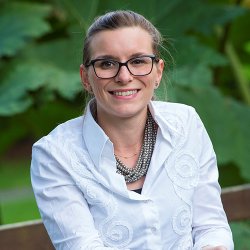Wearable sensors for wound healing
This PhD project will develop a range of wearable biochemical sensors for wound model systems in collaboration with Hull York Medical School.
Start date
1 October 2022Duration
3.5 yearsApplication deadline
Funding source
EPSRCFunding information
£16,062 stipend per annum, and fees covered. Funding for research consumables also provided.
UK candidates only - only UK fees covered.
About
This PhD project will develop a range of wearable biochemical sensors for wound model systems (in collaboration with Hull York Medical School). The sensors will conform to the wound using miniaturised electronics (in collaboration with Nottingham Trent University) to allow on-body measurements.
What the research needs to address
Chronic wounds are wounds that exceed a 3-month healing process. Biomarkers that can indicate chronic wounds include temperature, oxygen, pH, lactate, glucose and the proinflammatory cytokine interleukin-6 (IL-6). Prolonged exposure of wound tissue to proinflammatory cytokines stimulates the production of biochemical molecules whose prolonged expression leads to impaired healing.
Wound infection is considered a major contributor to chronicity, with bacterial biofilms being responsible for over 80% of persistent infections. Similar biochemical molecules as already mentioned are found in the environment of chronic wounds with bacterial biofilms and are one of the possible reasons that they fail to heal.
Our vision is to enable a step change in wound healing outcomes by building on our existing strength of electronic textiles and wearable chemical sensors. We have expertise in modifying textile electrodes to make electrochemical sensors, to form a smart bandage. We have recently shown that we can detect wound-related biomolecules in a textile electrode. We wish to build on that and show that our approach is also successful for a wider range of wound-related biochemical molecules.
This PhD project will investigate
Textile/electrode modification and variation in biomolecule/ linker structure. We will specifically study:
- Optimise electrode material modification from existing protocol
- Variation in linker chemistry attached to an electrochemical reporter
- Comparison to control molecules to determine sensor specificity.
This is a broad topic, with opportunities to tailor the project to your particular interest, be that analysis, materials development, or biocompatibility.
All facilities required to do the work are available at Surrey. There is potential to collaborate with Hull York Medical School to use their facilities for wound models.
Please contact Dr Carol Crean for informal discussions on the topic c.crean@surrey.ac.uk.
Eligibility criteria
Applicants are expected to hold a first or upper-second class degree in a relevant discipline or a lower second plus a good Masters degree (distinction normally required).
This project is for UK candidates, only UK fees are covered.
English language requirements
IELTS Academic: 6.5 or above (or equivalent) with 6.0 in each individual category.
How to apply
Applications can be made through the Chemistry PhD page via the “apply" tab. Please clearly state the studentship title and supervisor on your application.
If applying please confirm your application by emailing Dr Carol Crean at c.crean@surrey.ac.uk.
Chemistry PhD
Studentship FAQs
Read our studentship FAQs to find out more about applying and funding.
Application deadline
Contact details

Studentships at Surrey
We have a wide range of studentship opportunities available.



